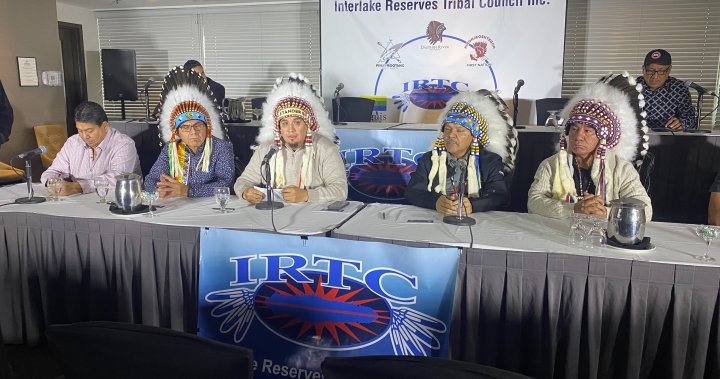The Interlake Reserve Tribal Council (IRTC) asserts a significant shortfall in Jordan’s Principle funding from the federal government, impacting essential services for vulnerable families. IRTC leadership claims a $1.5 million deficit in expected funding by the end of January 2025. This delay has created a critical situation for numerous families relying on Jordan’s Principle for vital support, including medical care, housing assistance, and specialized services for children with disabilities. IRTC Council Chair Chief Cornell McLean highlighted the urgency of the situation with a poignant example of a family facing eviction due to unpaid rent, a situation he personally intervened in using his own resources. Chief Kurvis Anderson of Pinaymootang First Nation echoed this concern, emphasizing the council’s reliance on their own revenue to cover expenses for a program that should be federally funded. The shortfall affects approximately 900 families within the IRTC communities. The frustration amongst leadership is palpable, with Little Saskatchewan First Nation councillor Darrell Shorting threatening to escalate the situation by shutting down Highway 6 if the funding issue remains unresolved. This demonstrates the severity of the situation and the desperation felt by the communities.
The IRTC’s claim arises in the context of ongoing scrutiny of Jordan’s Principle implementation. The Canadian Human Rights Tribunal, in a November 2024 ruling, acknowledged a significant backlog of Jordan’s Principle cases and ordered the federal government to devise a comprehensive plan to address it. Adding to the complexity of the issue, the IRTC contends that there is a lack of efficient oversight over how Jordan’s Principle funding is allocated and utilized. While they have successfully managed the program’s finances in their communities, having passed an audit spanning the past eight years, they advocate for clearer guidelines and regulations to enhance the program’s effectiveness and transparency. Chief McLean argues that structured guidelines are crucial for achieving the full potential of Jordan’s Principle.
Jordan’s Principle, named in honor of Jordan River Anderson, a young boy from Norway House Cree Nation, was established to prevent jurisdictional disputes between federal and provincial governments from hindering access to essential services for First Nations children. Jordan’s tragic story, where he passed away in hospital while governments debated responsibility for his care, underscores the principle’s importance. The principle ensures that First Nations children receive the necessary care and services promptly, with financial arrangements sorted out subsequently. The principle aims to close gaps that lead to delays or denials of essential services.
The federal government, through Indigenous Services Canada, maintains that it has fulfilled its funding obligations to the IRTC, refuting the claim of a funding delay. According to their statement, $28.8 million has already been distributed to the IRTC for the 2024-25 fiscal year, with an additional $13 million approved and awaiting disbursement according to established contribution agreements. This discrepancy in reported figures highlights the core of the conflict between the IRTC and the federal government.
The services covered by Jordan’s Principle encompass a broad range, including vital medical equipment, mental health services tailored to the specific needs of the communities, and culturally relevant programming. Since 2016, the federal government reports a commitment of $3.5 billion to Jordan’s Principle, reflecting its significance in addressing systemic inequities in access to essential services for First Nations children.
The IRTC represents a collective of seven First Nations communities: Dauphin River First Nation, Kinonjeoshtegon First Nation, Lake Manitoba First Nation, Lake St. Martin First Nation, Little Saskatchewan First Nation, Peguis First Nation, and Pinaymootang First Nation. This partnership emphasizes the shared challenges and collaborative efforts in advocating for their collective needs and ensuring equitable access to essential services for their children. The dispute over Jordan’s Principle funding underscores the ongoing struggle to ensure that the spirit and intent of this vital principle translate into tangible benefits for the children it is designed to protect. Resolution of this funding discrepancy is critical to ensuring that these vulnerable families receive the necessary support and that the legacy of Jordan River Anderson serves its intended purpose. The differing accounts of funding disbursement between the IRTC and the federal government underscore the need for transparent communication and clear accountability mechanisms to ensure that funds reach the intended recipients.










